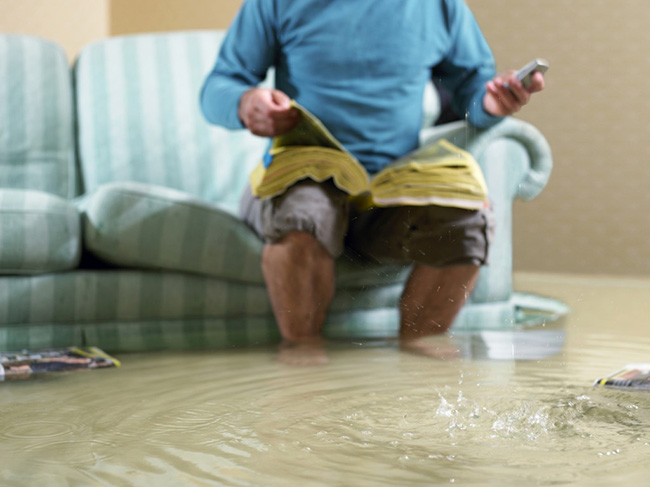Tips from the GHBA Remodelers Council
“Be sure to have your contractor leave a working bathroom and kitchen facilities (such as a sink, stove and dishwasher) during the reconstruction. These should be on the first floor, especially if there is anybody with handicaps living in the home.”Michale Souter, Caliber Construction Group/Certified Restoration
In the aftermath of the recent devastating flooding, starting the recovery process is the next step. Stay safe and be patient as you focus on the obvious tasks of cleanup and restoration.
“As you go about the recovery process, insurance adjusters and estimators will be scarce,” said David Norman of Caliber Construction Group/Certified Restoration. “Keep in mind that insurance claims will not be handled like claims for a typical storm. Flood insurance only covers structure and contents, not alternate living expenses (ALE). If you don’t have flood insurance or your coverage is not enough, FEMA may be able to supplement.”
“Nine out of 10 people won’t be able to afford ALE and will want to stay in their home while it is being repaired,” said Michael Souter of Caliber Construction Group/Certified Restoration. “If this is the case for you, be sure to have your contractor leave a working bathroom and kitchen facilities (such as a sink, stove and dishwasher) during the reconstruction. These should be on the first floor, especially if there is anybody with handicaps living in the home.”
Advertisement
“Be wary of people who are trying to take advantage of your wallet, door-to-door salespeople and contractors, especially those from out of town.”Larry Abbott, Abbott Contracting
If you have property damage, take care of emergency repairs immediately. If your home has been flooded, you need to dry it out to prevent or remove mold and mildew growth. There are some things that you can do yourself, but it is highly recommended to hire an experienced contractor to make sure the job is done safely and correctly.
Keep in mind some recommendations from the GHBA for what to do in case of property damage:
- Turn off main power if wiring is wet or moldy. Have an electrician check the house’s electrical system before turning power on again.
- Open the house to fresh air when the humidity is lower outside than inside.
- Use fans and dehumidifiers to remove excess moisture unless mold has already started to grow (fans may spread existing mold).
- Use the HVAC system only if the ducts have not been inundated (any forced air central heating ducts that have come in contact with water or mold should be professionally checked).
- Remove all wet items such as furniture, rugs, bedding, toys, carpeting, ceiling tiles, drywall and wood byproducts. If wallboard is soaked, remove it to a foot (12 inches) above the water mark and discard. Drain walls by removing baseboard and drilling holes near floor. Dry panel-type wall by pulling the bottom edge out from studs. Check interior of the wall for hidden mold.
- Discard soaked or moldy carpeting. Clean all other items first with soap and warm clean water to remove dirt and debris. Next, sanitize surfaces with one cup household liquid bleach per every 5 gallons of water. Be sure to wear boots and gloves when cleaning.
- Discard all possibly contaminated food products – anything not in a water-tight container.
It is also recommended that you take photographs of all of the damaged property, including discarded objects, structural damage, and standing floodwater levels. Make a list of damaged or lost items and include their date of purchase, value, and receipts, if possible. Officials may require disposal of damaged items, so if possible, place flooded items outside of the home.
Larry Abbott, owner of Abbott Contracting and vice president of the Remodelers Council, suggests that you be aware and protect yourself from possible fraud and scams, which are very common in times of natural disasters.
“Be wary of people who are trying to take advantage of your wallet, door-to-door salespeople and contractors, especially those from out of town,” Abbott said.
Be sure to look up the company on the Better Business Bureau website, checking that the company has a working phone number, website and is insured. It is also advisable to get references from all contractors you are thinking of working with. Don’t be swayed by the lowest price; focus on the reputation and experience of the contractor instead.
Article by Kevin Vick, a Houston-area remodeler and president of the GHBA Remodelers Council. The Remodelers Council is dedicated to promoting professionalism and public awareness of the remodeling profession through education, certification and service to the Houston community. Re-posted from the Houston Chronicle.
Join the Council | Find a Professional Remodeler in your Area

